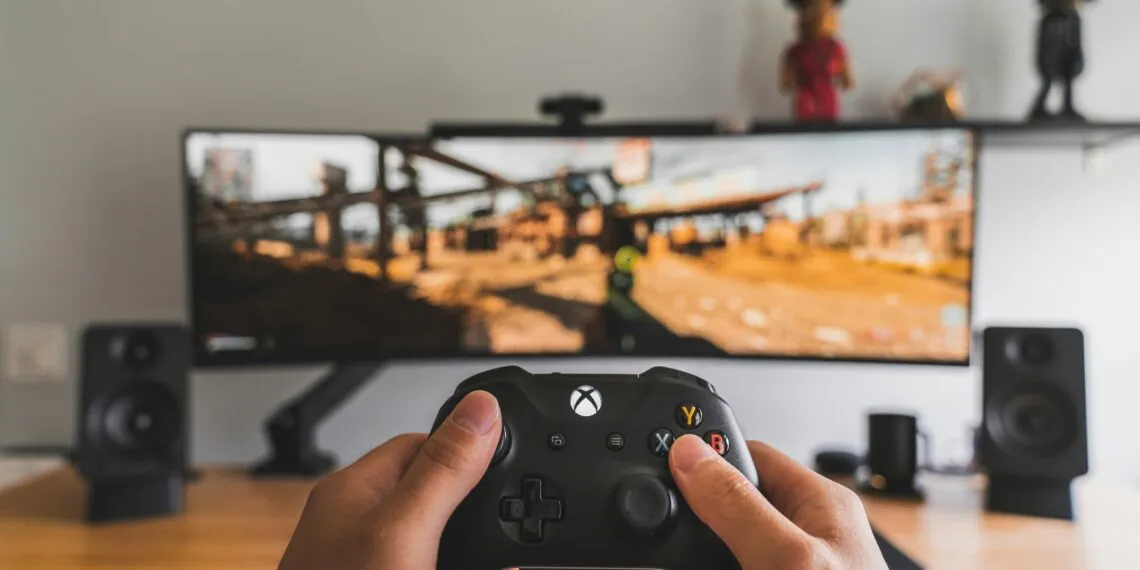The best generals don’t just win battles… they calculate them. Strategy games sharpen your ability to think in odds and outcomes, much like what happens at the card table.
When you’re deep into a campaign in Cost of War, you’re not just moving units around a map; you’re constantly calculating odds. Will your flanking maneuver succeed if the opponent anticipates it? How much resource risk can you absorb before your economy collapses? War games aren’t about luck; they’re about probabilities layered with human intuition. And interestingly, that same blend of calculation and gut-feel is alive in games like blackjack free, where the battlefield isn’t terrain but numbers.
Probability as the Hidden General
You might not consciously think about it when you’re in the middle of a tense match, but your brain is constantly running the math. Every troop movement is a fraction, every resource trade a percentage. Will this investment in artillery pay off three turns later? What are the odds your opponent overextends and leaves a flank exposed?
That’s the language of probability. an invisible general sitting beside you, guiding decisions. And the more you play, the sharper your instincts become.
Blackjack works in a surprisingly similar way. Sure, at a glance it looks like just hitting or standing, but every decision hangs on probability. A card counter doesn’t “see the future” … they’re simply tuned into the math, the same way a seasoned Cost of War player is tuned into predicting enemy patterns.
Tactical Discipline: Knowing When to Retreat
One of the hardest lessons in war games is recognizing when a battle isn’t worth fighting. You can pour soldiers into a choke point for glory, but if the odds aren’t on your side, you’ll bleed your army dry. Smart players learn restraint; they step back, save resources and wait for a more favorable engagement.
The same discipline applies at the card table. If you’re sitting on a weak hand, discipline tells you not to chase it. There’s no shame in folding early or standing down; the real skill lies in conserving strength for the right moment.
And let’s be honest: whether in war or cards, restraint feels less exciting than bold attacks. But victory often belongs to the patient, not the reckless.
The Role of Probability in Storytelling
Something fascinating about Cost of War is how probability doesn’t just shape the battles; it shapes the stories. Think about it: the one risky maneuver that somehow pays off becomes a tale you share with your guild for weeks. The unlikely ambush that worked against all odds becomes part of community lore.
That unpredictability (bounded by probability) is exactly what keeps blackjack interesting. If it were purely random, nobody would care. If it were purely calculable, it would feel sterile. But because probability leaves room for tension and surprise, every match, every hand carries a story.
This is why strategy-minded communities thrive: they don’t just crunch numbers, they narrativize them. They transform math into legend.
Training Your Mind Without Even Realizing It
Here’s the secret: by playing war games, you’re building a skillset far more practical than you might think. You’re learning to:
- Weigh risk versus reward under pressure.
- Anticipate how probability influences outcomes.
- Stay disciplined even when emotions tempt reckless moves.
- Make peace with uncertainty (because you’ll never have perfect information).
Those same habits transfer seamlessly into probability-based games like blackjack. When you try a round of blackjack free, you’ll notice how naturally your brain starts predicting, pausing and adjusting because you’ve been practicing all along in the theater of war.

Probability as a Community Language
One underrated aspect of Cost of War is how probability creates a shared language among players. You hear it when people say things like “90% chance of success, but I just knew it would fail” or “The odds were terrible, but the gamble was worth it.”
The same language pops up in blackjack circles: people don’t just talk about wins or losses, they talk about odds, hands and “what should have happened.” The math becomes a communal bonding point.
It’s no accident that strategy communities overlap; people drawn to one arena of probability often wander into others, comparing tactics and trading stories. The battlefield changes, but the mindset remains.
Why This Matters Beyond Games
At the end of the day, strategy gaming isn’t just about escape. It’s about sharpening your mind in subtle ways. By wrestling with probability, you’re training yourself to see patterns, to respect uncertainty, to think several steps ahead.
That kind of thinking translates everywhere. From negotiating real-world decisions to handling career risks, the same instincts apply. Life is a probability game; you’ll never know the outcome for sure, but you can stack the odds in your favor.
And whether you’re holding a digital army or a hand of cards, the goal is the same: stay calm, think clearly and trust the math hiding beneath the chaos.
Seeing Unseen Numbers
War games and probability-based card games like blackjack may seem worlds apart, but they orbit the same core truth: mastery isn’t about eliminating risk. It’s about understanding it. The battlefield, whether it’s drawn on a map or shuffled in a deck, rewards players who think not just about the present move, but the probabilities shaping the next five.
So the next time you’re marching troops across the digital frontlines, remember you’re also training to read the unseen numbers that rule every game… and maybe even life itself.







